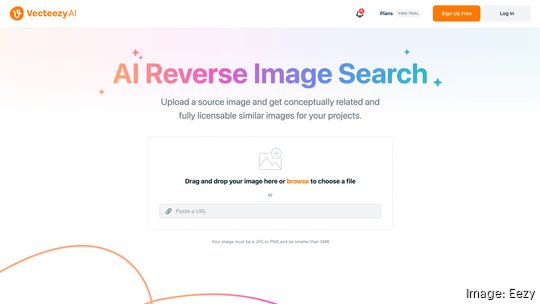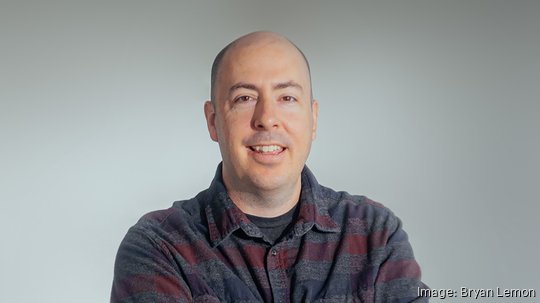
When it came to attracting the attention of the largest names in the stock photo space, Shawn Rubel never had to reach out to them — they came to him.
The main product of Rubel’s Bowling Green, Kentucky-based company, Eezy, is Vecteezy.com, a stock photo digital platform that entered an exclusive deal in April with Shutterstock in which Vecteezy becomes Shutterstock’s “premier image source,” according to a news release.
The arrangement represents a full-circle moment after Shutterstock “back in the day,” in Rubel’s words, first approached him with the idea of attaching an application programming interface (API) on Vecteezy’s site in exchange for a percentage of the sales that were generated with the API. Getty Images had gotten word and offered more for the company to use its API and before long, an inadvertent bidding war had begun.
Before the recent agreement with Shutterstock, Eezy had a similar three-year exclusivity arrangement with Getty.
Although the company runs remotely, Eezy has maintained an office space in the Western Kentucky University Innovation Campus for several years.
Before Covid, the company had approximately 20 employees working out of the office. These days, a handful of employees go to the office regularly, which Rubel said has become more of a “meeting/hangout spot.” The company currently has a headcount of 90 employees.

One thing to note is that Eezy has undertaken its ascent in the marketplace, while being bootstrapped from Day One — a function not so much of intention, but happenstance.
“I’d love to say I did it on purpose, but frankly I didn’t know any better,” Rubel said with a chuckle in a recent interview. “My background was in graphic design, and web development, so the concept of raising millions of dollars, and putting that to work was a very scary concept to me back then.”
Now, Rubel and his team have talked about raising capital, but said that it does not make sense at the moment given the company’s profitability and organic growth. Eezy recently crossed the $15 million mark in annual recurring revenue (ARR).
Rubel started the company in 2007 as a side project while working in a marketing manager role at Camping World’s corporate offices in Bowling Green. He had first moved to the city in 2004 after graduating from Brock University in Ontario, Canada, to take a position at Hitcents, a local independent video game publisher and developer.
At the beginning, Rubel — with approximately 10,000 photos on the platform — designed Eezy’s website with the help of a contractor who built out features named Kennon Ballou. After working as a CTO for another Bowling Green-based shop, Ballou returned to Eezy/Vecteezy as a senior engineer in 2020, according to Ballou’s LinkedIn profile.
It was not until about three years ago that Rubel said that his company started making a push to “double down” on the amount of photos it had. By the end of 2023, there should be somewhere in the vicinity of 30 million photos. By the close of 2022, Vecteezy had approximately 15 million images.
“It’s really flooding in now,” Rubel said.
To combat fraud, photographers and content creators who wish to submit their content must go through a “rigid” vetting process. Once approved into the community, members can start to send in their photos for approval. The site, which averages more than 10 million visitors a month, has approximately 25,000 contributors.
Visitors can either purchase a monthly or yearly subscription or buy individual images through a credit system where one credit equals one image. It should be noted that Rubel and his team were also “freemium” pioneers by offering lots of free services and products to customers who would then later become subscribers.
Looking ahead
In response to the waves caused by artificial intelligence (AI) tools, Vecteezy has launched what it called an AI Reverse Image Search, where users can upload an image and then see similar contextually related images. Those who built the new feature did not start doing so until somewhere in late winter/early spring.
“We started looking into this thinking ‘There’s something here, and this can really help us and help our customers,'” Rubel said.
Speaking of AI-created art, Rubel said that the trend will undoubtedly lead to more creators and more digital tools. While Rubel does think that the world of AI-based content has and will continue to create a sea change in the industry, he does not share the pessimistic outlook that others in the content creation space have adapted over the months.
Instead of burying photographers shooting real images, Rubel is of the belief that the surge in AI-manufactured photos will create a higher demand for photos that contain a narrative within themselves, mentioning the well-known collective work of those who have shaped the pages of National Geographic magazine over the years.
“You can generate a generic beautiful photo, but at some point there’s going to be a shift … The best way to describe it is it’s lacking a soul,” he said of the computer-created artwork. “It’s lacking a story behind the image.”









